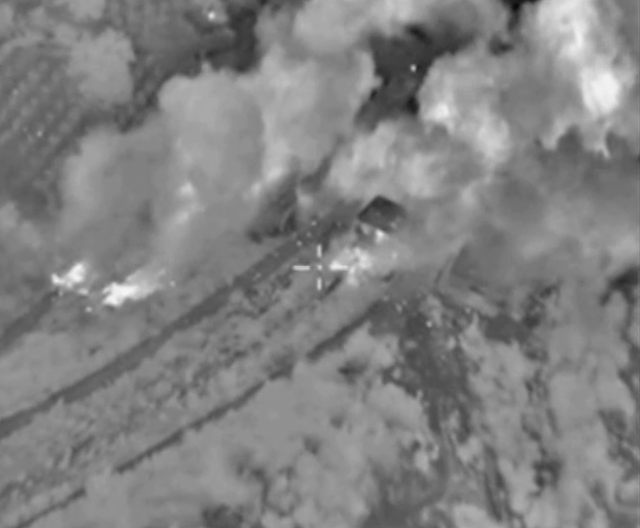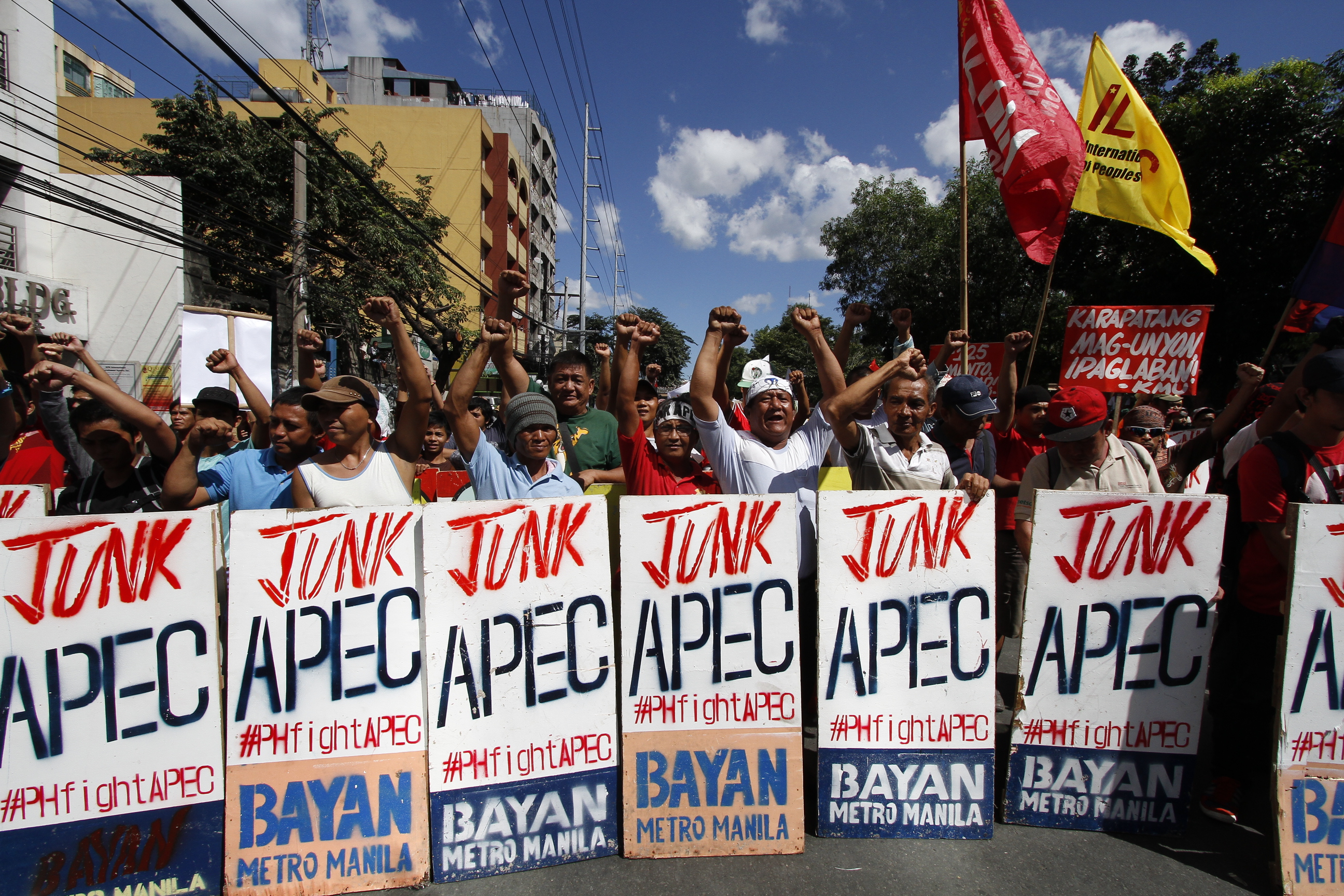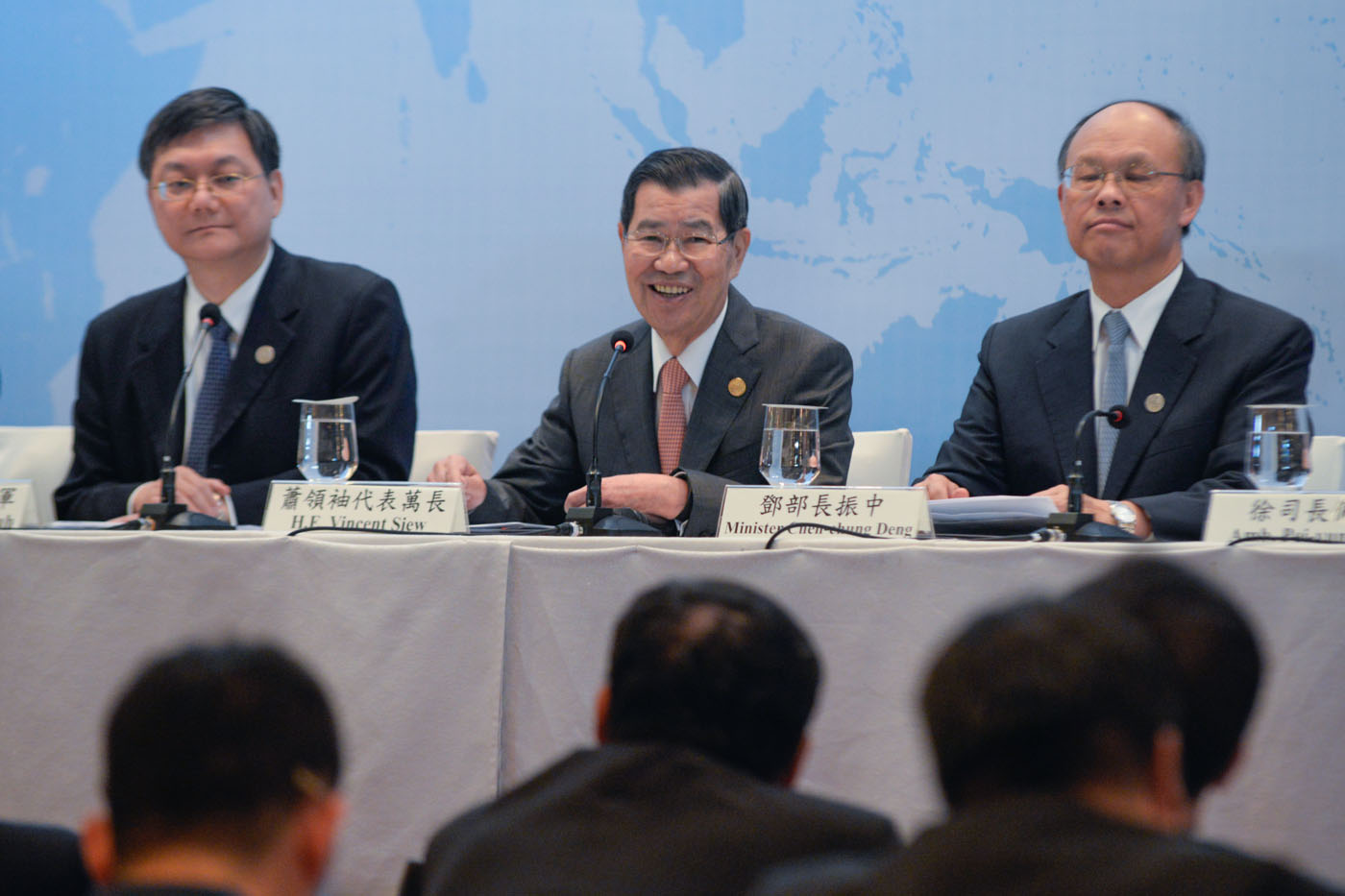
MANILA, Philippines – Despite their short stay in the Philippines, some family members of Asia-Pacific Economic Cooperation (APEC) leaders had a chance to pursue an advocacy and explore beyond the Philippine capital.
While Japanese Prime Minister Shinzo Abe was busy with activities related to the APEC summit, his wife, Akie Abe, took the time to visit Japanese non-governmental organization (NGO) Salt Payatas Foundation Philippines in Quezon City on Wednesday, November 18.
"The Japanese First Lady went to Payatas to visit her project," former Cultural Center of the Philippines president Nestor Jardin, who heads APEC's creative team, told reporters on Thursday, November 19.
The NGO's livelihood project, Likha Shop, helps residents living in the Payatas dumpsite.
Jardin also shared that the daughters of Mexican President Enrique Peña Nieto traveled south to Tagaytay, a popular getaway city in Luzon, while their father was busy attending to his official duties in Manila.
Jardin said Paulina and Nicole went to Taal Vista Hotel with a plan "to savor Filipino delicacies." Here's what they ordered at one of the restaurants there, Tāza:
- Fresh mushroom soup (a trio of Tagaytay mushrooms: oyster, shiitake, and button)
- Margherita pizza (fresh local tomatoes, Laguna kesong puti, pato quezo de bola, Laguna mozzarella, and homemade ricotta)
- Grilled vegetable pizza (eggplant, zucchini, roasted peppers, Laguna mozarella cheese, parmesan cheese, truffle oil and balsamic glace)
Presidential sister Kris Aquino confirmed the Tagaytay trip. She knows because she had been texting with Paulina.
"I asked, 'How are you doing now?' She said this morning, they're getting ready to leave, but she kept saying thank you so much for taking care of them and they enjoyed the Philippines so much even if they were just here for two short nights," Aquino said.
Among the foreign delegates, the youngest Aquino is especially close to the Mexican president, who even requested her presence during his state visit to the Philippines, timed with the APEC summit.
{source}
<blockquote class="instagram-media" data-instgrm-captioned data-instgrm-version="5" style=" background:#FFF; border:0; border-radius:3px; box-shadow:0 0 1px 0 rgba(0,0,0,0.5),0 1px 10px 0 rgba(0,0,0,0.15); margin: 1px; max-width:658px; padding:0; width:99.375%; width:-webkit-calc(100% - 2px); width:calc(100% - 2px);"><div style="padding:8px;"> <div style=" background:#F8F8F8; line-height:0; margin-top:40px; padding:50.0% 0; text-align:center; width:100%;"> <div style=" background:url(data:image/png;base64,iVBORw0KGgoAAAANSUhEUgAAACwAAAAsCAMAAAApWqozAAAAGFBMVEUiIiI9PT0eHh4gIB4hIBkcHBwcHBwcHBydr+JQAAAACHRSTlMABA4YHyQsM5jtaMwAAADfSURBVDjL7ZVBEgMhCAQBAf//42xcNbpAqakcM0ftUmFAAIBE81IqBJdS3lS6zs3bIpB9WED3YYXFPmHRfT8sgyrCP1x8uEUxLMzNWElFOYCV6mHWWwMzdPEKHlhLw7NWJqkHc4uIZphavDzA2JPzUDsBZziNae2S6owH8xPmX8G7zzgKEOPUoYHvGz1TBCxMkd3kwNVbU0gKHkx+iZILf77IofhrY1nYFnB/lQPb79drWOyJVa/DAvg9B/rLB4cC+Nqgdz/TvBbBnr6GBReqn/nRmDgaQEej7WhonozjF+Y2I/fZou/qAAAAAElFTkSuQmCC); display:block; height:44px; margin:0 auto -44px; position:relative; top:-22px; width:44px;"></div></div> <p style=" margin:8px 0 0 0; padding:0 4px;"> <a href="https://instagram.com/p/-L8s4oyEuk/" style=" color:#000; font-family:Arial,sans-serif; font-size:14px; font-style:normal; font-weight:normal; line-height:17px; text-decoration:none; word-wrap:break-word;" target="_blank">W/ @paupepre (Paulina Peña Pretelini, the beautiful daughter of President Enrique Peña Nieto) </a></p> <p style=" color:#c9c8cd; font-family:Arial,sans-serif; font-size:14px; line-height:17px; margin-bottom:0; margin-top:8px; overflow:hidden; padding:8px 0 7px; text-align:center; text-overflow:ellipsis; white-space:nowrap;">A photo posted by Kris Aquino (@withlovekrisaquino) on <time style=" font-family:Arial,sans-serif; font-size:14px; line-height:17px;" datetime="2015-11-17T12:55:31+00:00">Nov 17, 2015 at 4:55am PST</time></p></div></blockquote>
<script async defer src="//platform.instagram.com/en_US/embeds.js"></script>
{/source}
Aquino and her older sisters on Thursday organized a tour around Intramuros for the spouses of APEC leaders. (READ: IN PHOTOS: Kris Aquino hosts lunch for APEC leaders' spouses)
Some APEC leaders left Manila after the summit ended on Thursday, with more to follow on Friday, November 20. (READ: Xi, other APEC leaders leave Manila) –Rappler.com





















